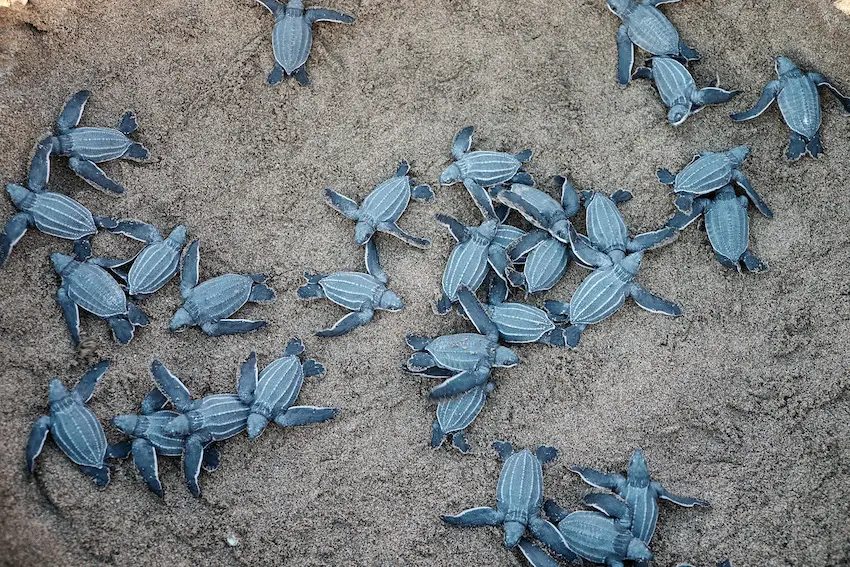As this year’s sea turtle spawning-and-nesting period nears an end, Cancún municipal officials have reported that roughly 950,000 hatchlings have been released and made their way to the ocean.
Fernando Haro Salinas, director of ecology for Benito Juárez municipality, told reporters this week that the majority of the hatchlings were green sea turtles (Chelonia mydas), locally known as tortuga blanca.

While three or four of the more than 50 incubation sites were still active, Haro called this year’s season a success.
“The total number of arrivals was slightly less than last year, but still quite a high number,” Haro told reporters.
Haro said this is not unusual, explaining that it is common for a high spawning season to be followed by a lower one, according to Diario Cambio 22.
Last year in the municipality, more than 11,000 nests were identified with an estimated 1,282,839 eggs from which roughly 1,205,000 hatchlings made their way to the sea.

On the other hand, Haro said, the survival rate at the incubation sites was approximately 97% this year, an improvement over the 94% hatch rate in 2022 and 2023.
In response to a question, Haro said meteorological conditions were also a likely contributor to the reduced number of arrivals, as this year’s hurricanes impacted nesting areas by causing beach erosion.
In all, the municipality and participating hotels protected 7,500 nests, which contained an estimated 978,000 eggs. Haro said the municipality operates four nurseries and the hotels — with permits issued by the federal Environment Ministry — manage the rest.
“We provide training [for hotel personnel] and work with the public to protect the nests,” he said.
It is a curious phenomenon that female sea turtles return to the precise location where they were born to lay their own eggs.
Four different turtle species laid their eggs along Cancún beaches this year (Cancún is the municipal seat of Benito Juárez), according to Haro. In addition to the green sea turtles, loggerhead (Caretta caretta), hawksbill (Eretmochelys imbricata) and leatherback (Dermochelys coriacea) turtles were spotted laying eggs.
With reports from Noticaribe, Cambio 22 and Luces del Siglo
